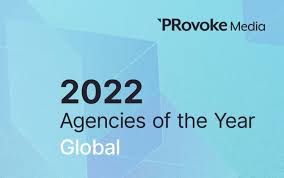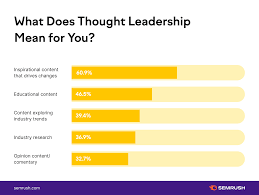Industry-Specific PR Consultant: Your Key to Effective Communication and Brand Building
In today’s competitive business landscape, effective communication and strategic brand building are essential for any company looking to thrive. However, navigating the intricacies of public relations (PR) can be a daunting task, especially when it comes to industry-specific challenges. This is where an industry-specific PR consultant can make all the difference.
An industry-specific PR consultant is a professional who specializes in providing communication solutions tailored to the unique needs and demands of a particular industry. Whether it’s technology, healthcare, finance, or any other sector, these consultants possess in-depth knowledge and expertise that allow them to craft targeted strategies that resonate with both the industry’s stakeholders and the target audience.
One of the primary advantages of working with an industry-specific PR consultant is their ability to understand the nuances of your sector. They are well-versed in the latest trends, regulations, and market dynamics that impact your industry. This knowledge enables them to develop compelling narratives that effectively position your brand within a crowded marketplace.
Furthermore, an industry-specific PR consultant brings valuable connections and relationships within your sector. They have built networks with key influencers, journalists, analysts, and thought leaders who hold influence within your target market. Leveraging these relationships can significantly enhance your brand’s visibility and credibility through media coverage, expert opinions, and strategic partnerships.
Another crucial aspect of working with an industry-specific PR consultant is their ability to navigate complex issues specific to your sector. Whether it’s managing crisis communication during a product recall or addressing regulatory challenges head-on, these consultants possess the expertise required to handle sensitive situations effectively. Their deep understanding of your industry ensures that they can provide timely advice and guidance when you need it most.
Moreover, an experienced industry-specific PR consultant will conduct thorough research on your competitors’ communication strategies. By analyzing their strengths and weaknesses in the media landscape, they can identify opportunities for differentiation and help you carve out a unique position in the market. This competitive intelligence allows you to make informed decisions and stay ahead of the curve.
Collaboration is at the heart of working with an industry-specific PR consultant. They will work closely with your internal teams to gain a comprehensive understanding of your business objectives, target audience, and brand values. Armed with this knowledge, they will develop a tailored communication plan that aligns with your goals and resonates with your stakeholders.
In conclusion, an industry-specific PR consultant can be a game-changer for businesses seeking to build a strong brand presence within their sector. Their specialized knowledge, connections, and expertise enable them to navigate the unique challenges of your industry and create effective communication strategies that drive results.
If you’re looking to enhance your brand’s visibility, build credibility, and effectively communicate within your specific industry, consider partnering with an industry-specific PR consultant. With their guidance and support, you can unlock the full potential of strategic communication and establish yourself as a leader in your field.
Industry-Specific PR Consultant: 9 Essential Tips for Success
- Have a good understanding of the industry you are working in and stay up to date with any changes or developments within it.
- Develop strong relationships with key players, influencers and decision makers in the industry.
- Utilise existing contacts but also build new ones to expand your network and open up more opportunities for PR campaigns.
- Keep track of industry trends and news stories so you can react quickly when needed to capitalise on media coverage or make sure your clients are not missing out on potential opportunities.
- Use a variety of different channels such as social media, press releases, newsletters, blogs etc to get your message across effectively and reach the right audience for each campaign.
- Be creative in order to stand out from competitors by using innovative techniques like video content or interactive experiences on websites/apps etc which will help engage customers better than traditional methods alone would do so .
- Monitor the success of campaigns regularly so that you can adjust tactics if necessary and ensure maximum return on investment for clients’ budgets – this is especially important given the competitive nature of many industries these days!
- Be proactive when looking for new opportunities – don’t wait around for something to come up; be prepared ahead of time so that you can take advantage when they do arise!
- Keep an eye out for any changes in regulations or laws which could affect how you operate within certain industries – this will help ensure that all PR activities remain compliant at all times!
Have a good understanding of the industry you are working in and stay up to date with any changes or developments within it.
Having a Good Understanding of Your Industry: The Key to Success for an Industry-Specific PR Consultant
In the fast-paced and ever-evolving world of public relations, staying ahead of the game is crucial. This is especially true for industry-specific PR consultants, who need to have a deep understanding of the sector they are working in. By having a good grasp of the industry and staying up to date with any changes or developments within it, these consultants can deliver effective communication strategies that yield exceptional results.
First and foremost, having a solid understanding of the industry allows an industry-specific PR consultant to speak the language of their clients. They are well-versed in the unique terminology, trends, challenges, and opportunities that exist within that particular sector. This knowledge enables them to craft compelling narratives and messages that resonate with both industry insiders and external stakeholders.
Furthermore, being aware of any changes or developments within the industry is vital for an industry-specific PR consultant. Industries are constantly evolving due to technological advancements, regulatory updates, market shifts, and consumer preferences. By staying up to date with these changes, consultants can anticipate potential challenges or opportunities that may arise for their clients.
Being knowledgeable about industry developments also helps consultants identify newsworthy topics or trends that can be leveraged for media coverage or thought leadership opportunities. By proactively monitoring news outlets and engaging with relevant publications, blogs, or social media platforms specific to the industry, consultants can position their clients as experts in their field and ensure they stay relevant in a rapidly changing landscape.
Additionally, having a good understanding of the industry allows consultants to provide valuable insights and strategic counsel to their clients. They can offer guidance on how best to navigate through challenges specific to that sector while capitalizing on emerging opportunities. This expertise adds significant value to client relationships as it demonstrates their consultant’s depth of knowledge and commitment to achieving success.
To maintain this level of understanding and stay up to date with any changes or developments, industry-specific PR consultants engage in continuous learning and professional development. They attend industry conferences, participate in webinars, read industry publications, and actively engage with thought leaders and experts within the sector. This commitment to ongoing education ensures that their knowledge remains current and relevant.
In conclusion, having a good understanding of the industry you are working in and staying up to date with any changes or developments within it is paramount for an industry-specific PR consultant. It allows them to speak the language of their clients, anticipate challenges and opportunities, provide valuable insights, and position their clients as leaders within their sector. By staying ahead of the curve, these consultants can deliver effective communication strategies that drive success for their clients in an ever-evolving business landscape.
Develop strong relationships with key players, influencers and decision makers in the industry.
Developing Strong Relationships: The Key to Success with an Industry-Specific PR Consultant
When it comes to industry-specific public relations (PR), one of the most valuable tips is to develop strong relationships with key players, influencers, and decision makers in your sector. These relationships can be instrumental in establishing your brand’s credibility, expanding your network, and ultimately achieving success.
An industry-specific PR consultant understands the importance of building connections within your industry. They recognize that these relationships can open doors to media opportunities, strategic partnerships, and valuable insights that can propel your brand forward.
Key players in your industry are individuals or organizations who hold significant influence or expertise within your sector. By forging strong relationships with them, you gain access to their knowledge, experience, and networks. This can be particularly beneficial when seeking endorsements or seeking collaborations that can elevate your brand’s reputation.
Influencers play a vital role in shaping opinions and trends within an industry. They have a loyal following and are seen as trusted authorities. Collaborating with influencers who align with your brand values can help you reach a wider audience and enhance your brand’s visibility. An industry-specific PR consultant can identify the right influencers for your business and facilitate meaningful partnerships that drive results.
Decision makers are individuals who have the power to make important choices within your industry. Building strong relationships with them can lead to valuable opportunities such as speaking engagements at conferences or invitations to exclusive industry events. These interactions allow you to showcase your expertise and position yourself as a thought leader in your field.
To develop strong relationships with key players, influencers, and decision makers in your industry, it is essential to approach these connections authentically and genuinely. Networking events, conferences, and trade shows provide excellent opportunities for face-to-face interactions. Actively engage in conversations, listen attentively, and seek ways to add value to their work or initiatives.
In addition to offline networking efforts, leveraging online platforms such as LinkedIn or industry-specific forums can help you connect with industry leaders and influencers. Engage in meaningful discussions, share valuable insights, and demonstrate your expertise in your field. This digital presence can significantly enhance your reputation and attract the attention of key players within your industry.
Working hand-in-hand with an industry-specific PR consultant can amplify your efforts in building relationships. Their expertise and established networks can provide valuable introductions and guidance on how to navigate the landscape effectively. They can also assist in crafting tailored strategies that resonate with key players, influencers, and decision makers, ensuring that your brand’s message reaches the right audience.
In conclusion, developing strong relationships with key players, influencers, and decision makers is a crucial tip when working with an industry-specific PR consultant. These connections can open doors to opportunities that elevate your brand’s visibility and credibility within your sector. By investing time and effort into building these relationships, you position yourself for long-term success in your industry.
Utilize Existing Contacts and Build New Ones: Expanding Your Network for Successful PR Campaigns
In the world of industry-specific PR, having a strong network can be the key to unlocking countless opportunities for successful campaigns. While leveraging existing contacts is valuable, it’s equally important to actively build new relationships. By combining these two approaches, you can expand your network and open up a world of possibilities.
Utilizing existing contacts is an excellent starting point for any PR consultant. These connections have already been established and can provide valuable insights, introductions, and collaboration opportunities within your industry. By tapping into their expertise and relationships, you can leverage their credibility to enhance your own reputation and gain access to new audiences.
When working with existing contacts, it’s essential to nurture these relationships by maintaining regular communication. Keep them updated on your latest projects, share relevant industry news or insights, and offer support whenever possible. By staying engaged with your existing network, you’ll strengthen those bonds and ensure that they continue to be valuable resources for future PR campaigns.
However, relying solely on existing contacts can limit your growth potential. To truly expand your network and discover new opportunities, actively seek out new connections within your industry. Attend industry events, conferences, and seminars where you can meet like-minded professionals who share similar interests or goals.
Building new connections allows you to tap into fresh perspectives and diverse networks that may have previously been untapped. These new contacts bring unique experiences and insights that can enrich your understanding of the industry while opening doors to exciting collaborations or media opportunities.
When building new relationships, approach networking with authenticity and genuine interest in others’ work. Take the time to understand their goals and challenges so that you can identify areas where a mutually beneficial partnership could flourish. Offer support or assistance when appropriate without expecting immediate returns; building trust takes time but is invaluable in the long run.
Additionally, don’t limit yourself to traditional networking events alone. Embrace digital platforms and social media to connect with industry professionals across the globe. Join relevant online communities, engage in discussions, and share valuable content to establish your expertise and attract like-minded individuals.
Remember, networking is not just about what others can do for you; it’s also about how you can contribute to their success. Actively seek opportunities to support your connections by sharing their work, recommending them for speaking engagements or media interviews, or collaborating on joint projects. By being a valuable resource to others, you strengthen your reputation and foster meaningful relationships within your industry.
In conclusion, combining the power of existing contacts with actively building new connections is crucial for expanding your network as an industry-specific PR consultant. Utilizing established relationships provides a solid foundation while actively seeking new connections opens up doors to fresh perspectives and untapped opportunities. By nurturing both aspects of networking, you’ll create a robust network that propels your PR campaigns towards success.
Staying Ahead with an Industry-Specific PR Consultant: Embrace the Power of Timely Reactions
In the fast-paced world of business, being proactive and responsive to industry trends and news stories is crucial for success. This is especially true when it comes to public relations (PR) and capitalizing on media coverage. By keeping track of industry trends and news, an industry-specific PR consultant can help you seize opportunities, maximize media exposure, and ensure your clients do not miss out on potential growth prospects.
As an industry-specific PR consultant, one of the key tips we offer is to stay abreast of the latest happenings within your sector. This means actively monitoring industry news outlets, following influential blogs, engaging with thought leaders on social media platforms, and participating in relevant industry events. By doing so, you can identify emerging trends, anticipate market shifts, and position your brand or clients as thought leaders in their respective fields.
Why is this important? Well, timely reactions are vital in today’s media landscape. When a significant development occurs within your industry or a trending topic emerges that aligns with your brand’s expertise or values, it presents a unique opportunity for media coverage. By being aware of these opportunities and reacting swiftly, you can secure valuable press mentions, interviews, or even guest contributions in reputable publications.
Moreover, staying informed about industry trends allows you to proactively address potential challenges or crises that may arise. By anticipating issues before they become full-blown crises, you can develop well-thought-out communication strategies that mitigate negative impacts on your brand’s reputation.
The role of an industry-specific PR consultant is not just limited to monitoring news; it also entails analyzing the implications of these developments for your brand or clients. By understanding how these trends may impact your target audience or market dynamics, you can adapt your communication strategies accordingly. This ensures that your messaging remains relevant and resonates with stakeholders during changing times.
By collaborating closely with an industry-specific PR consultant, you can leverage their expertise to identify opportunities and respond effectively. Together, you can develop a proactive approach that capitalizes on media coverage and positions your brand as a go-to source for industry insights and expertise.
In conclusion, keeping track of industry trends and news stories is an essential tip when working with an industry-specific PR consultant. By doing so, you can react quickly to capitalize on media coverage, secure valuable opportunities, and ensure your clients do not miss out on potential growth prospects. Embrace the power of timely reactions and stay ahead in today’s dynamic business landscape.
Use a variety of different channels such as social media, press releases, newsletters, blogs etc to get your message across effectively and reach the right audience for each campaign.
In the ever-evolving world of public relations, effectively getting your message across to the right audience is crucial for success. When working with an industry-specific PR consultant, one valuable tip to keep in mind is to utilize a variety of different channels to amplify your message and reach the right audience for each campaign.
Gone are the days when traditional media outlets were the sole means of communication. Today, we have a plethora of digital platforms and channels at our disposal, making it essential to diversify your communication efforts. By incorporating social media, press releases, newsletters, blogs, and more into your PR strategy, you can maximize your reach and engage with diverse audiences.
Social media platforms have become powerful tools for businesses to connect with their target audience directly. With billions of active users worldwide, platforms like Facebook, Twitter, LinkedIn, Instagram, and YouTube offer immense potential for sharing your brand’s story and engaging with followers. An industry-specific PR consultant will help identify which platforms are most relevant to your industry and develop tailored content that resonates with your target audience.
Press releases remain a staple in PR strategies as they allow you to share important news or announcements directly with journalists and media outlets. A well-crafted press release can generate media coverage that reaches a wider audience beyond your immediate network. An industry-specific PR consultant understands how to draft compelling press releases that capture attention and convey key messages effectively.
Newsletters provide an excellent opportunity to nurture relationships with existing customers or stakeholders. By regularly sharing updates about your company’s latest developments or industry insights through email newsletters, you can maintain engagement and foster loyalty among your target audience.
Blogs are another powerful tool for showcasing thought leadership within your industry. An industry-specific PR consultant can help develop an engaging blog strategy that positions you as an expert in your field. By consistently publishing informative and valuable content on relevant topics, you can attract readership while building credibility and trust.
It’s important to remember that each channel serves a unique purpose and caters to different audience preferences. An industry-specific PR consultant will help identify which channels are most effective for your specific campaigns and tailor your messaging accordingly. This targeted approach ensures that your message reaches the right audience through the channels they prefer, increasing the likelihood of engagement and conversion.
In conclusion, utilizing a variety of different channels is a valuable tip when working with an industry-specific PR consultant. By leveraging social media, press releases, newsletters, blogs, and other platforms, you can effectively communicate your message to diverse audiences. An industry-specific PR consultant will guide you in selecting the most appropriate channels for each campaign, ensuring that your message resonates with the right audience and drives desired outcomes.
Be creative in order to stand out from competitors by using innovative techniques like video content or interactive experiences on websites/apps etc which will help engage customers better than traditional methods alone would do so .
Standing Out in Your Industry: Harnessing Creativity with Innovative PR Techniques
In today’s fast-paced and competitive business world, simply relying on traditional PR methods may not be enough to capture the attention of your target audience. To truly stand out from your competitors, it’s crucial to embrace creativity and leverage innovative techniques that go beyond conventional approaches. One effective way to achieve this is by incorporating video content and interactive experiences into your PR strategy.
Video content has become a powerful tool in capturing the attention of consumers. With its ability to convey messages visually and emotionally, videos have the potential to engage and resonate with your audience on a deeper level. By creating compelling video content that showcases your brand’s story, values, or products/services, you can leave a lasting impression and build a stronger connection with your customers.
Interactive experiences on websites or apps are another innovative technique that can help you engage customers in a more meaningful way. By offering interactive elements such as quizzes, calculators, virtual tours, or personalized recommendations, you provide an immersive experience that encourages active participation from users. This not only creates a memorable brand experience but also allows you to gather valuable data and insights about your audience’s preferences and behaviours.
When incorporating these innovative techniques into your PR strategy, it’s important to ensure they align with your brand identity and objectives. The key is to strike a balance between creativity and relevance. Your video content should tell a compelling story that resonates with your target audience while effectively communicating your brand message. Similarly, interactive experiences should be designed in a way that enhances user engagement while providing value or solving a problem for the customer.
In addition to engaging customers better than traditional methods alone, these innovative techniques also have the potential to generate buzz and increase brand visibility. Videos are highly shareable on social media platforms, allowing you to reach wider audiences organically through likes, comments, shares, or even viral potential. Interactive experiences can also generate word-of-mouth marketing as users share their experiences with others, amplifying your brand’s reach and impact.
To successfully implement these techniques, it’s advisable to work with a PR consultant who specializes in industry-specific communication. They can help you identify the most effective ways to incorporate video content and interactive experiences into your overall PR strategy. With their expertise, they can guide you on creating content that aligns with your brand values and resonates with your target audience.
In conclusion, embracing creativity and incorporating innovative techniques like video content and interactive experiences can be a game-changer for your PR efforts. By going beyond traditional methods, you can engage customers in a more immersive way, stand out from competitors, and increase brand visibility. So, don’t be afraid to think outside the box and explore new avenues to captivate your audience – the possibilities are endless!
Monitor the success of campaigns regularly so that you can adjust tactics if necessary and ensure maximum return on investment for clients’ budgets – this is especially important given the competitive nature of many industries these days!
In today’s highly competitive business landscape, it is crucial for companies to have a strong and effective PR strategy in place. When working with an industry-specific PR consultant, one key tip to ensure maximum return on investment is to monitor the success of campaigns regularly.
Monitoring the success of PR campaigns allows you to gauge their effectiveness and make informed decisions about adjusting tactics if necessary. By tracking key performance indicators (KPIs) such as media coverage, website traffic, social media engagement, and customer feedback, you can assess the impact of your PR efforts on your target audience and industry stakeholders.
Regular monitoring provides valuable insights into what is working well and what may need adjustment. It allows you to identify trends, patterns, and areas for improvement. By staying vigilant and proactive in measuring campaign success, you can swiftly adapt your tactics to optimize results.
In today’s fast-paced business environment, industries are constantly evolving. Consumer preferences change rapidly, new technologies emerge, and competitors are always vying for attention. Regularly monitoring campaign success helps you stay ahead of these shifts by identifying emerging trends or potential challenges early on.
Moreover, monitoring campaign success ensures that you are making the most of your clients’ budgets. By tracking the return on investment (ROI) of each campaign element, you can allocate resources more effectively. This way, you can focus on tactics that yield the highest ROI while optimizing or reevaluating strategies that may not be delivering desired outcomes.
The competitive nature of many industries makes regular monitoring even more critical. It allows you to identify opportunities where your brand can stand out from the crowd or respond swiftly to emerging threats. By keeping a close eye on campaign performance metrics and adjusting tactics accordingly, you can maintain a competitive edge in an ever-changing marketplace.
To effectively monitor campaign success, it is essential to establish clear goals and KPIs from the outset. This will provide a benchmark against which progress can be measured. Utilize various tools and analytics to gather data and gain actionable insights. Regularly review this data, analyze trends, and make informed decisions based on the findings.
In conclusion, monitoring the success of PR campaigns is a vital aspect of working with an industry-specific PR consultant. By regularly assessing performance, adjusting tactics if necessary, and ensuring maximum return on investment for clients’ budgets, you can stay competitive in today’s fast-paced business environment. Embrace the opportunity to optimize your PR strategies and achieve greater success in your industry.
Be proactive when looking for new opportunities – don’t wait around for something to come up; be prepared ahead of time so that you can take advantage when they do arise!
Industry-Specific PR Consultant: The Power of Proactivity in Seizing Opportunities
In the fast-paced world of business, being proactive is a crucial trait that can set you apart from the competition. This holds especially true when it comes to working with an industry-specific PR consultant. Rather than waiting for opportunities to come knocking on your door, taking a proactive approach can help you maximize the benefits and stay ahead of the game.
One of the key aspects of being proactive is staying informed about industry trends, market developments, and upcoming events. By keeping a finger on the pulse of your sector, you can anticipate potential opportunities and be prepared to seize them when they arise. A proactive industry-specific PR consultant will continuously monitor relevant news, research reports, and industry conferences to identify potential avenues for your brand’s growth.
Being prepared ahead of time is another essential element in proactively seeking new opportunities. This means having a clear understanding of your business objectives and target audience, as well as having a well-defined communication strategy in place. By working closely with your industry-specific PR consultant, you can develop a comprehensive plan that aligns with your goals and positions you favorably within the market.
Proactivity also involves actively engaging with key stakeholders within your industry. This includes building relationships with journalists, influencers, analysts, and thought leaders who hold influence in your sector. By establishing connections and nurturing these relationships over time, you increase your chances of being top-of-mind when relevant opportunities arise. Your industry-specific PR consultant can guide you in identifying these key players and help facilitate meaningful interactions.
Furthermore, proactivity extends to content creation and thought leadership initiatives. By regularly producing high-quality content such as articles, blog posts, whitepapers or participating in panel discussions or speaking engagements at industry events, you position yourself as an expert in your field. This not only enhances your brand’s credibility but also opens doors to new opportunities such as media interviews or collaboration requests.
A proactive mindset also means actively seeking feedback and continuously improving your communication strategies. Regularly evaluate the effectiveness of your PR efforts, analyze the results, and adapt your approach accordingly. This iterative process ensures that you stay agile and responsive to industry changes, maximizing your chances of capitalizing on emerging opportunities.
In conclusion, being proactive when working with an industry-specific PR consultant can be a game-changer for your brand’s success. By staying informed, being prepared, engaging with key stakeholders, and creating valuable content, you position yourself favorably to seize new opportunities as they arise. Embrace proactivity as a core principle in your communication strategy and watch as it propels your brand to new heights within your industry.
Keep an eye out for any changes in regulations or laws which could affect how you operate within certain industries – this will help ensure that all PR activities remain compliant at all times!
Staying Compliant: The Importance of an Industry-Specific PR Consultant
In today’s fast-paced business world, industries are constantly evolving, and regulations and laws can change in the blink of an eye. As a company operating within a specific sector, it is crucial to stay up-to-date with any changes that may impact your operations. This is where an industry-specific PR consultant becomes invaluable.
One of the key responsibilities of an industry-specific PR consultant is to keep a vigilant eye on regulatory developments within your sector. They understand the intricacies of the industry and are well-versed in the ever-changing landscape of laws and regulations. By monitoring these changes, they can ensure that all your PR activities remain compliant at all times.
Operating within the boundaries of legal and regulatory frameworks is not only essential for maintaining a good reputation but also for avoiding potential penalties or damage to your brand. An industry-specific PR consultant will help you navigate through these complexities, providing guidance on how to adapt your communication strategies to align with new regulations.
By working closely with an industry-specific PR consultant, you can proactively identify any potential risks or challenges that may arise due to regulatory changes. They will help you develop effective communication plans that address these issues head-on while ensuring compliance with relevant laws.
Moreover, an industry-specific PR consultant understands that compliance extends beyond just adhering to legal requirements. They also consider ethical considerations specific to your sector. By incorporating ethical standards into your communication strategies, they help safeguard your brand’s reputation and maintain trust amongst stakeholders.
The expertise of an industry-specific PR consultant goes beyond simply reacting to regulatory changes; they actively monitor trends and anticipate future developments within your sector. This proactive approach allows them to provide timely advice on how to adapt your messaging or modify campaigns in response to upcoming shifts in regulations.
Collaborating with an industry-specific PR consultant ensures that you have a dedicated professional who understands the nuances of your sector’s compliance requirements. Their knowledge and experience enable them to navigate the complexities of regulations and laws, providing you with peace of mind that your PR activities are always in line with the latest standards.
In conclusion, keeping an eye out for any changes in regulations or laws that could affect your operations is crucial for maintaining compliance within your industry. An industry-specific PR consultant plays a vital role in ensuring that your communication strategies remain compliant at all times. By partnering with them, you can stay ahead of regulatory developments, mitigate risks, and protect your brand’s reputation.








